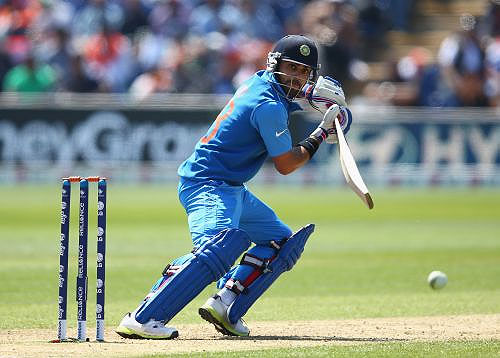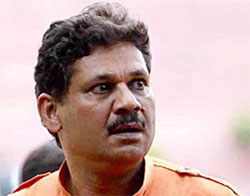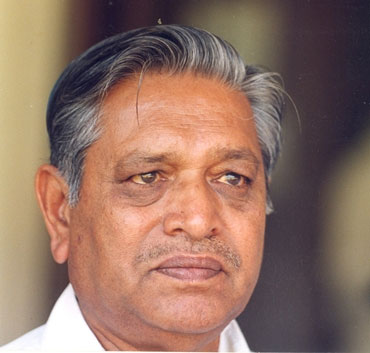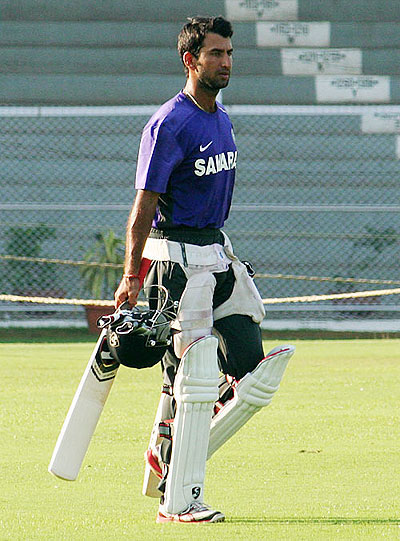 | « Back to article | Print this article |
BCCI's gag order on players is rigid, say ex-players
The BCCI's attempt to gag contracted Indian cricketers from speaking to the media after tours has drawn flak from former players who have questioned the logic behind such a move.
Two top Indian players -- Rohit Sharma and Cheteshwar Pujara -- have been cautioned by the BCCI for giving interviews recently in violation of their contractual terms which all the players doing national duty have signed.
Rohit had given interviews shortly after returning from the tri-series in the West Indies where he did very well as an opener.
Pujara, who was not on the tour to the West Indies, had given an interview speaking about making himself a regular in the Indian ODI team following his selection for the tour of Zimbabwe.
"The two players have been cautioned not to speak to the media immediately after the tour. BCCI Secretary Sanjay Patel had a word with them reminding them of their contractual obligation," a top BCCI official said.
'Rule of not allowing the players to give one-on-ones should be done away with'
As per the BCCI contract, no Indian player is allowed to speak to the media one month before and after a particular tour. Altogether 39 Indian players are contracted across three grades with Grade A players getting Rs 1 crore annually while Grade B and Grade C get Rs 50 lakh and Rs 25 lakh respectively.
But the clause seeking to gag players from expressing their views has not gone down well with some of the former players.
Ex-India cricketer Kirti Azad, who was a member of the 1983 World Cup-winning team, said there was no need for having such a clause at all.
"I think this rule of not allowing the players to give one-on-one interviews should be done away with. Agreed media is present in large numbers but if someone has performed well, he should be allowed to speak as fans are curious to know what they feel and how much planning and hard work has gone into it," Azad said.
"I don't think it's fair to stop the media from interacting with players," Azad said.
'I presume the Board is taking measures in these bad times for cricket'
Asked about the rule during his time, Azad said, "We used to have a contract which stated that we can't speak about the series for one month after coming back to India. But in those days, media wasn't as vibrant as it is now and it hardly mattered then."
Former cricketer Chandu Borde did not see any logic behind the BCCI's clause.
"I don't know what exactly has happened and the reason behind such a gag order. I presume the Board is taking some measures in these bad times for cricket. The sport has earned a lot of disrepute over the last few months with spot-fixing and now doping! Maybe it's one way of a preventive measure by the Board," Borde said.
"But such things did not happen in our times; mediamen had free access to us. We also have some very good friends from the media. Things have changed now. I understand it's a tough call for media. They should request the Board and sort it out," he said.
'Players should at least be allowed to speak about their own game'
Former selector Sambaran Banerjee said it was a BCCI decision and he would not like to comment on it.
"It's a BCCI decision, we have to wait and see. I can't say much about it. However, I can say such a thing did not exist during our times," he said.
Another former player felt the current lot of cricketers should be allowed to interact with the media and the Board seemed to be too rigid with their stand.
"It really defies logic why players are not allowed to speak. It's fine if it is sensitive issue or a controversial matter. But the players should at least be allowed to speak about their own game," a former player said on condition of anonymity.
"Secondly, there is so much of cricket being played these days that they will never be able to speak at all if they abide by the one-month period under the contractual terms," he said.



